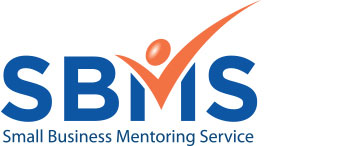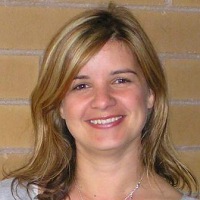I want to select a Mentor that can help with...
Mountain District Learning Centre
Making a profit for the community
Community organisations are not strictly businesses but must balance their books to function well. Thanks partly to help from the Small Business Mentoring Service, the Mountain District Learning Centre (MDLC) is on a strong footing to offer education and support to surrounding residents.
MDLC was established in 1974 by a small group of local women who felt the community needed to meet in a supportive atmosphere to share experiences and skills. It is a co-operative managed by an elected volunteer Board of Directors.
The Ferntree Gully centre offers a wide range of programs and support to the local community, including child care and occasional care facilities, a Hi-Rise Garden Group and many special interest groups. It provides a full range of adult education programs aimed at disengaged youth, adults wanting to improve their education, locals and other community groups.

MDLC manager Sue Dunn is a qualified teacher who is also qualified in community development, and training and assessing. She is now studying business management, but until recently had very little business experience.
Sue says MDLC is an important community facility, and one of the few non-school VCE providers. It has flexible and long-term programs which have attracted loyal members and clients. With seven permanent part-time staff and 20 casuals, running the organisation is not unlike managing a small business. Any profits are used to run and improve the organisation.
While the centre is well established and has trained staff, Sue wanted to ensure its financial situation was sound and that she was managing things to the best of her ability. “I have only been manager for a few months and felt I needed to learn about the business side of our operation,” she says.
After hearing about the SBMS through Adult, Community and Further Education (ACFE), Sue was matched with SBMS mentor Mi Thian-De Wind. Mi has more than 15 years experience in the financial services industry and after leaving her last position as CEO of a superannuation fund decided she wanted to share her skills and experience with businesses needing practical, down-to-earth help. These cover a broad range of disciplines including business planning, finance, marketing and relationship management.
The SBMS is a non-government, non-profit organisation of volunteer expert mentors who give their time and experience to help small business. It is supported by Small Business Victoria, which refers clients to it.
Sue had five sessions with Mi over five months as part of an ACFE funded program. Mi offered general management advice about things such as business and strategic plans, staff management, operational and planning issues, risk management and costing models. She also helped with:
- general business principles
- the budget and business plan
- financial and general compliance plans
- a disaster recovery plan
- dealing with directors
Mi says as Sue was relatively new to her role as Manager, the mentoring was useful to help start her on the right track, “rounding out and fine tuning her existing skills”. It focussed on ensuring that policy and compliance-related activities also had practical applications and were of day-to-day use. “The business should benefit from a better equipped manager given how crucial this position is its future success,” Mi says.
“Sue already had a very good grasp of business issues. She mainly needed a sounding board and reassurance that she was on the right track. Most of the work we did was of a fine-tuning nature. I believe that she is much more confident of her skills compared to before mentoring started.”



The MDLC has qualified and experienced tutors and trained volunteers who work with participants and students to create a comfortable and safe adult learning environment. It has provided a pathway to an improved quality of life for thousands of people, including whole families.
The Centre has a seven-person Board of Directors selected annually by the members of the co-op. Membership is open to everyone and information sessions are run regularly for those interested in joining.
Sue says it is hard to quantify the success of her SBMS mentoring in terms of statistics, due to difficulties with financial reporting. “However generally our Youth program has doubled from last year and our VCE has grown about 10 per cent,” she says. A change in funding for the VCE is also expected to boost the centre’s income by about 20 per cent.
Mi also offered good ideas on how to deal with staff issues and how to work more effectively with the directors. Sue says this has made her job easier and made her a more effective manager. “The opportunity to think and discuss the business with someone outside the business has helped me focus my ideas and the guidance provided has helped us develop our business strategy” Sue says.
The centre is now better placed to cope when education funding changes could see it lose funding for some of its courses. Sue is working on alternative revenue streams with a greater understanding of how to do things like business plans and risk management plans.
“It was really, really helpful,” Sue says of Mi’s mentoring. “It helped me get my head around the business side of things. The budgets are set. I’m getting the board now to work on policy review. All that sort of stuff has just started to slot in place. I wouldn’t mind getting Mi back to talk to the Board of Directors.”
Sue adds that other community organisations, which often don’t have business expertise, should use the SBMS. “I have been very impressed with the service and found it extremely helpful,” she says. “One way to improve it would be to increase awareness of the service in the community sector. I would not have known about it if it hadn’t come through ACFE.”
To download a copy of this case study, click on the PDF icon: ![]()


.png)
